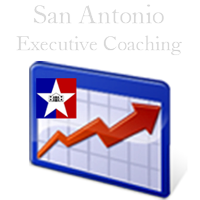EQ May Be The Greatest Equalizer
The EQ Importantce of EQ
 Why is an emotional intelligence important to your organization? According to an article in Fast Company, teams with higher EQ foster engagement and teams with higher engagement are:
Why is an emotional intelligence important to your organization? According to an article in Fast Company, teams with higher EQ foster engagement and teams with higher engagement are:
- 50% more likely to have lower turnover
- 56% more likely to have higher-than-average customer loyalty.
- 38% more likely to have above average productivity
- 27% more likely to report higher profitability
Over the past ten years, one of business’ most lamentable refrains has been, “We can’t find people equipped with the soft skills” needed to do a job. I know because my clients experience the same hiring challenges that you have.
Apparently there is no shortage of people with hard skills and knowledge. They get hired but don’t stay hired. Or worse, they stay hired and don’t produce! So what are the soft skills, people lack? Experience has taught us the soft skills are the habits and attitudes people bring to work. Habits and attitudes are the culmination of our experiences up to this point in our lives, or “How we think”. Researchers and social scientists now call this experiential summary, our Emotional Intelligence (EQ). Unlike, IQ which is relatively fixed, EQ is continually influenced by our experience, messages, and feelings.
The best news is that EQ competencies are measurable and learn-able; they can be improved through training and coaching. An Emotionally Intelligent organization uses EQ training to:
- Improve recruiting
- Improve performance
- Improve leadership performance
- Improve organizational climate
- Reduce absenteeism
- Reduce costs of turnover
Does EQ Development Really Work?
Research has provided clear evidence that emotionally intelligent companies are more successful. Many of these studies yield bottom-line results:
- At PepsiCo, executives selected for EQ competencies generated 10% more in productivity.
- High EQ sales people at L’Oreal brought in $2.5 million more in sales.
- An EQ initiative at Sheraton helped increase market share by 24%.
- The US Air Force uses EQ to screen para-rescue jumpers to save $190 million.
In Turn the Ship Around! retired Navy Captain L. David Marquet and commander of the nuclear submarine USS Santa Fe describes how a “boat” culture with low emotional intelligence had to improve its emotional EQ to become one of the most efficient and productive submarines in the U.S. Navy.
Usually, “rocking the boat” is not a good thing, but in Captain Marquet’s situation, he first had to rock the boat to gain attention and set an emotionally intelligent course correction.


